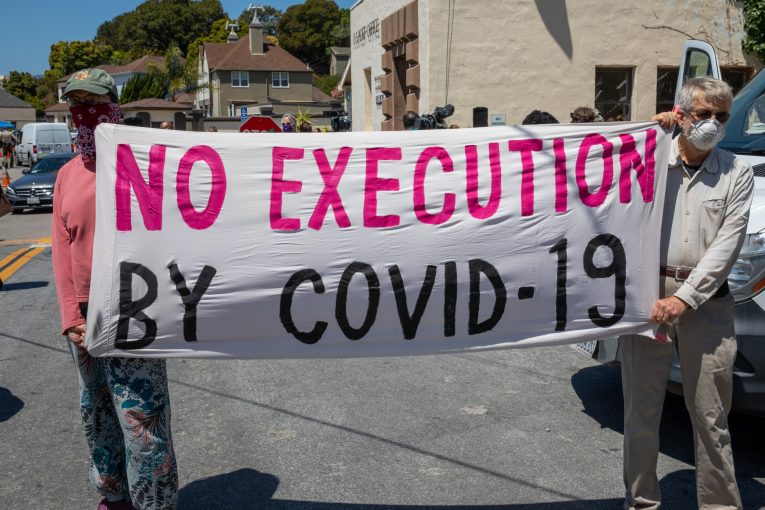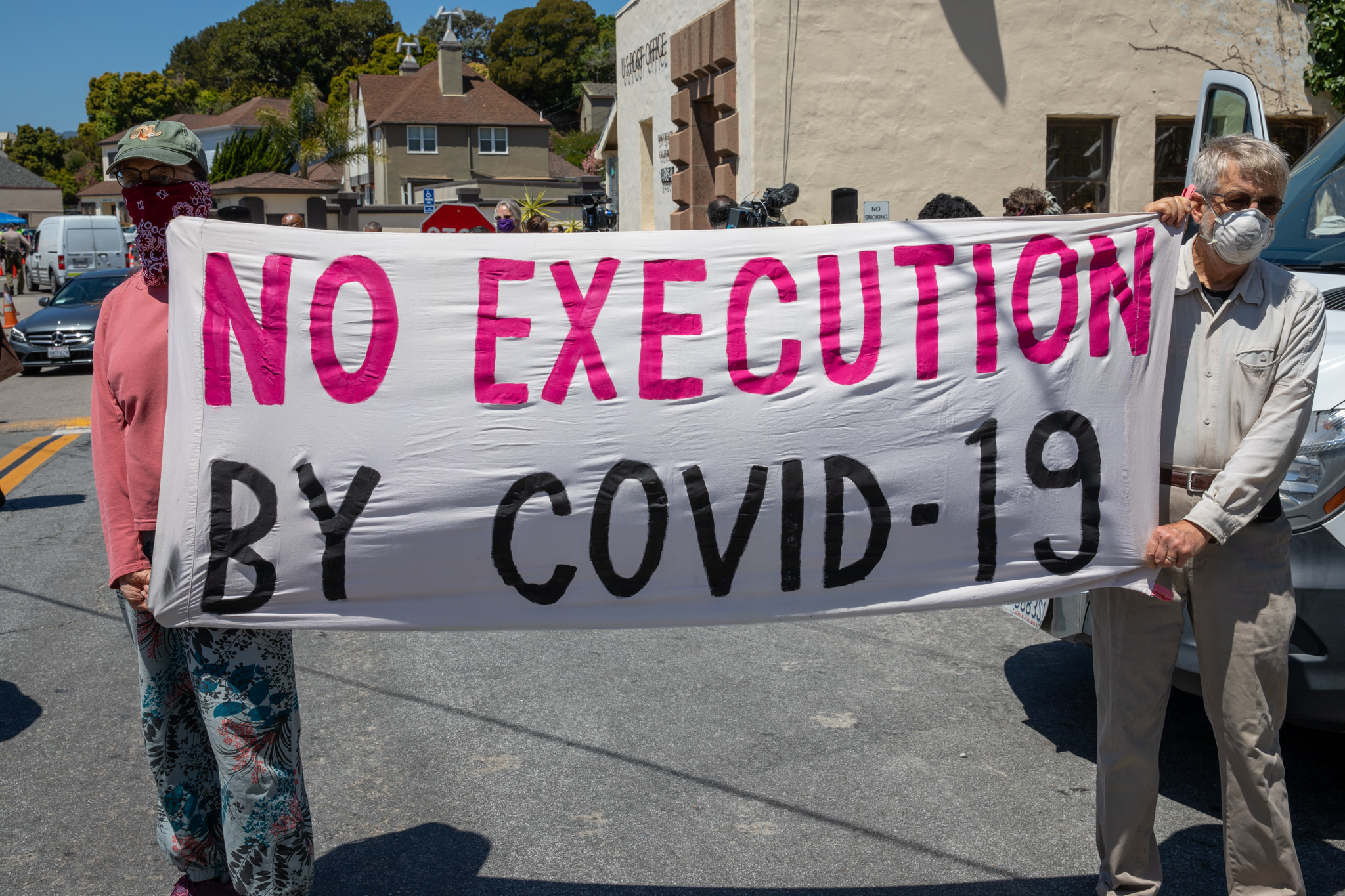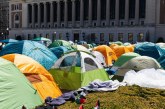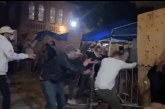

By Dominique Kato
After months of warning about the potential health consequences of COVID in prison, San Quentin and CDCR as a whole has emerged with a public health crisis—critics charge largely of its own making.
The #StopSanQuentinOutbreak Coalition hosted a press conference on Wednesday, to update the public on the COVID-19 outbreak in San Quentin State Prison, which recently had 26 deaths.
The online Facebook Live event was hosted by James King and Ella Baker Center for Human Rights. The live event featured public health experts, lawyers, activists, formerly and currently incarcerated individuals as well as loved ones of those inside.
James King began by discussing what led to “the largest coronavirus outbreak in the country at its height.”
On May 31, a prison transfer from the California Institution for Men (also known as Chino) occurred. “Not one decision that led to the transfer was motivated by care for the people who are in the custody of the state,” stated King.
King discussed what he called a “disturbing” timeline. In April San Quentin turned down free testing for guards and incarcerated people, and in mid May 1,000 gallons of hand sanitizer was donated to the prison, but was never distributed.
San Quentin was over 110 percent capacity at the time of the Chino transfer and many of the people who transferred had not been tested for two weeks prior, stated King. June 1, the day after the transfer, Dr. Matthew Willis, a Marin County top public health officer, met with the warden and warned the prison to radically sequester the people who just transferred in. The advice was ignored.
King stated that 10 weeks later the prison was still over capacity. The response from the prison was to use tents in the prison industrial authority space as field hospitals. He stated this reduced the use of outside hospitals but “the underlying factors make covid an additional punishment.”
To this day he says there is no ability to social distance, no PPE, no regular testing and at least 2,500 have been infected, with 26 known deaths.
Danielle Harris, a managing attorney at the San Francisco Public Defender’s Office, said, “We are doing everything we can to free our fellow human beings from overcrowded and unsafe prisons.”
Harris stated they are working in two ways, first using the Penal Code section 1170(d) resentencing process, and, second, using habeas corpus petitions for immediate release. She discussed how the habeas corpus led to a case in Marin County Superior Court involving 44 incarcerated individuals at San Quentin “despite a mind numbing 68.5% covid infection rate there.
“The public defender’s office intends to prove the Department of Corrections’ insistence on keeping people caged in these conditions violates the 8th Amendment, the prohibition against cruel and unusual punishment,” stated Harris.
Next was a recording from Juan Moreno Haines, who is currently incarcerated in San Quentin. Haines discussed the current conditions inside the prison saying, “We should not have 800 people  living in a building that is designed for 400.”
living in a building that is designed for 400.”
Hains mentioned several times to follow the science, which means people have to be released. He discussed the prison is shuffling people around, putting people everywhere. Haines is currently recovering from COVID and since then he has lived with 3 different people and is unsure of whether or not they had COVID.
“The problem is overcrowding, a perfect environment for the virus, and the perfect environment for people to die in, which people are,” stated Haines.
Dejon Joy, another incarcerated individual at San Quentin, called live to discuss the conditions. Joy stated it is impossible to social distance under the conditions and they are actually three feet apart.
He mentioned the morale inside the prison is bleak, there is an overwhelming sense of certainty due to the pandemic, and many suffer from depression and anxiety. Haines stated, “I believe the only solution is to reduce the population by 50 percent, to significantly improve our living conditions.” He says this would allow more resources to be allocated, allow people to seek adequate health services, and allow people to protect themselves.
Haines discussed he is housed in the gym with 87 other individuals, in an unventilated space. When asked if they had working toilets and ventilation, he stated that during the day they have 12 sinks and 8 toilets but during the night only 2 sinks, 1 urinal and 4 toilets, all shared among 87 people. He noted the only ventilation is that a door is kept open.
The fourth panelist was Michael Bien, Class Action Chief Consul in the Plata v. Newsom case, who discussed the three ongoing class actions currently in progress. “In each case we are pursuing improvements in the treatment and identification of COVID-19 in the prisons” stated Bien.
He mentioned they have had very little success. Of the 65,000 high risk people, only 8 were released up until now. He stated that 13 of the 51 people who died, were to be paroled sometime in 2020-2021.
“From day 1 we have called for the significant release of incarcerated inmates, so they have the option to practice the same kind of social distancing measures and COVID prevention measures” said Bien.
Dr. Neeta Thakur, a public health expert and UCSF critical care physician, spoke next, discussing a number of issues regarding the prison. Thakur stated, “The number of deaths among those incarcerated will continue to increase unless the expert recommendation of reducing the population by 50% is met.”
She mentioned 53 people have died, about 8,850 are infected, and a quarter of these cases are in San Quentin.
She mentioned the severe disproportionate rates saying, “In California black men are 6 times more likely than white men to be incarcerated and three-quarters of those incarcerated are those of color.” She ended by saying, “Leaving people locked up in crowded spaces during this pandemic is not a humane alternative to release.”
Following Thakur was Guy, a health care worker for San Quentin, who agreed with Haines and Joy about the unsafe conditions inside the prison. He said that H-Unit inside the prison was for low risk people and had no COVID infection until recently. Guy said “that would’ve been the time to release people, and it wasn’t done, and now infections are there.”
Next was Chris Scull, who was recently released from San Quentin less than a month ago and discussed the process of release. Scull discussed how he was notified of his release three days prior, and was quarantined in a motel.
Scull discussed how they whisked him in a van, he had on a full gown and face shield, and was driven to Gardena, CA, where he hadn’t lived in over 25 years. Luckily Scull noted he had family there to help and plenty of support from the community. He said the “CDCR left me to myself.”
The last speaker was Lupe Cardenas, a survivor of a crime, who had lost her husband about six years ago. She told her story of how the DA exploited her pain to harshly sentence the individuals responsible and was left with no support.
She discussed her story in an attempt to stop the DAs from exploiting survivors’ pain in order to justify keeping individuals locked up. Cardenas called for rehabilitation, accountability, and more community programs, saying “we can’t keep incarcerating people and expecting a different result.” She ended by stating, “The CDCR is harming and taking lives.”
Wrapping up the event, James King directed everyone to join the #StopSanQuentinOutbreak on Twitter. He ended by saying we have lost 53 individuals in the state, and 26 of those deaths were in San Quentin, and “if we don’t want it to rise it’s important we address this now.”
To sign up for our new newsletter – Everyday Injustice – https://tinyurl.com/yyultcf9






